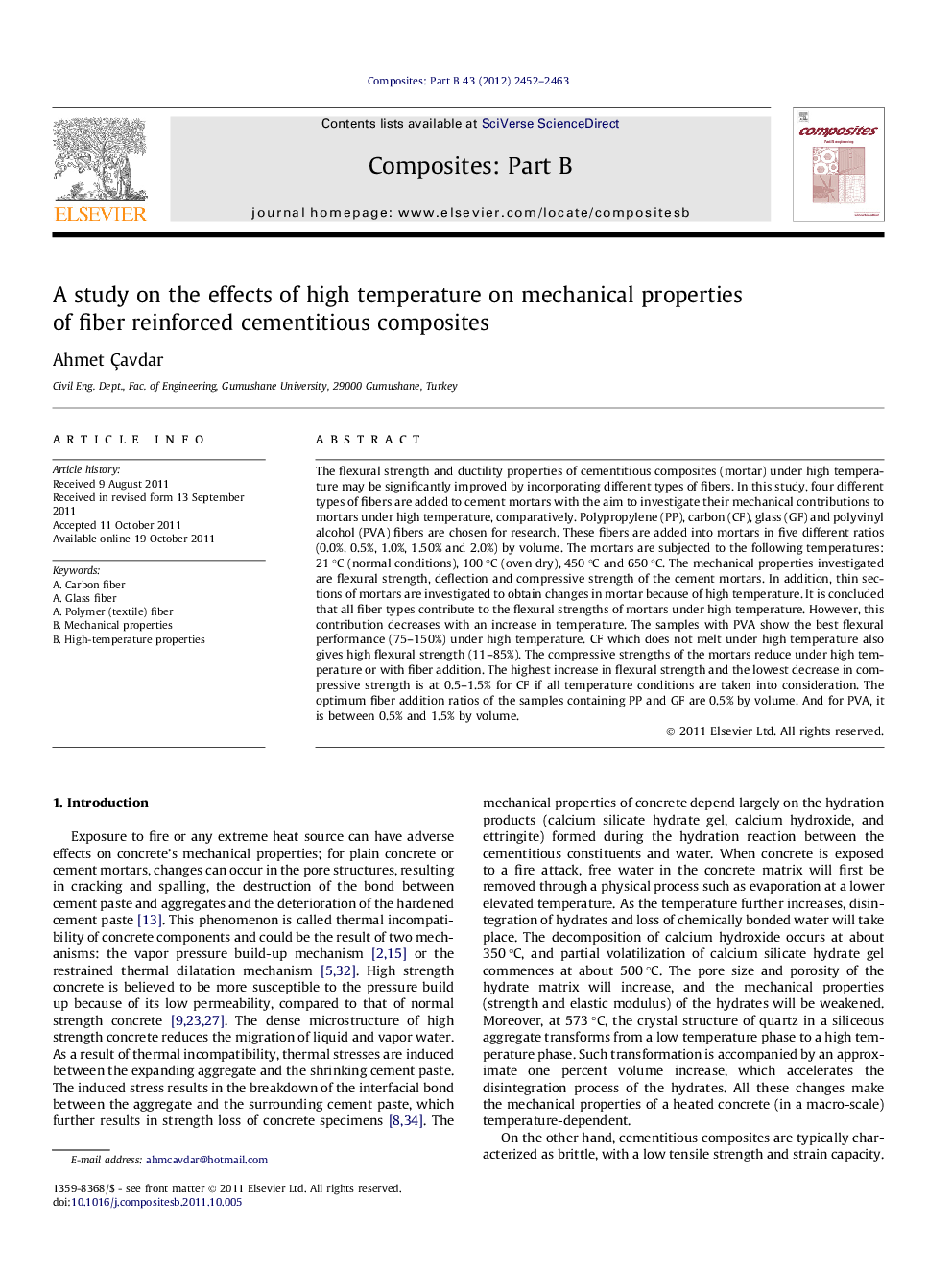| Article ID | Journal | Published Year | Pages | File Type |
|---|---|---|---|---|
| 818728 | Composites Part B: Engineering | 2012 | 12 Pages |
The flexural strength and ductility properties of cementitious composites (mortar) under high temperature may be significantly improved by incorporating different types of fibers. In this study, four different types of fibers are added to cement mortars with the aim to investigate their mechanical contributions to mortars under high temperature, comparatively. Polypropylene (PP), carbon (CF), glass (GF) and polyvinyl alcohol (PVA) fibers are chosen for research. These fibers are added into mortars in five different ratios (0.0%, 0.5%, 1.0%, 1.50% and 2.0%) by volume. The mortars are subjected to the following temperatures: 21 °C (normal conditions), 100 °C (oven dry), 450 °C and 650 °C. The mechanical properties investigated are flexural strength, deflection and compressive strength of the cement mortars. In addition, thin sections of mortars are investigated to obtain changes in mortar because of high temperature. It is concluded that all fiber types contribute to the flexural strengths of mortars under high temperature. However, this contribution decreases with an increase in temperature. The samples with PVA show the best flexural performance (75–150%) under high temperature. CF which does not melt under high temperature also gives high flexural strength (11–85%). The compressive strengths of the mortars reduce under high temperature or with fiber addition. The highest increase in flexural strength and the lowest decrease in compressive strength is at 0.5–1.5% for CF if all temperature conditions are taken into consideration. The optimum fiber addition ratios of the samples containing PP and GF are 0.5% by volume. And for PVA, it is between 0.5% and 1.5% by volume.
